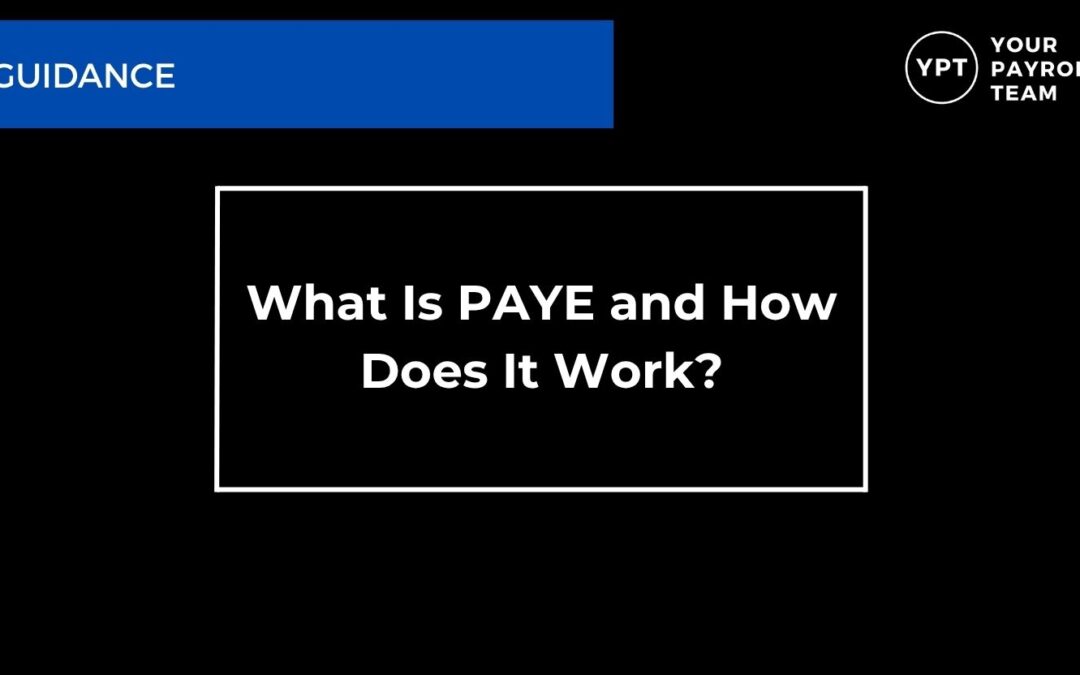PAYE (Pay As You Earn) is the system HMRC uses to collect Income Tax and National Insurance from employees’ pay.
As an employer, you’re legally responsible for operating PAYE correctly every time you run payroll.
This guide explains PAYE in simple terms so you know what it is, how it works, and what you must do as an employer.
What PAYE Does
PAYE ensures that:
-
Employees pay the correct amount of tax and National Insurance
-
Employers deduct the right amounts each payday
-
HMRC receives payments on time
-
Tax codes and thresholds are applied correctly
-
Deductions for student loans and other obligations are handled properly
If PAYE is not operated correctly, employers may face penalties and employees may end up under- or over-paying tax.
How PAYE Works
PAYE works by deducting tax and NIC from employees’ pay before they receive it.
Here’s what’s involved:
1. Tax Codes and Allowances
Each employee has a tax code that tells payroll:
-
How much tax-free income they’re entitled to
-
Whether they owe tax from previous years
-
Whether benefits or other income affect their code
Examples include:
-
1257L – standard tax-free allowance
-
BR – basic rate tax applied to all earnings
-
K codes – used when deductions exceed allowances
-
L, M, N – used for marriage allowance
Using the wrong tax code is one of the most common payroll errors.
2. Income Tax Deductions
Income tax is deducted based on:
-
The employee’s tax code
-
Their earnings in the pay period
-
The correct tax band (20%, 40%, 45%)
Payroll software calculates tax automatically, but it relies on accurate data.
3. National Insurance (NIC)
Employers must also calculate:
-
Employee NIC (Class 1 primary)
-
Employer NIC (Class 1 secondary)
NIC depends on:
-
The employee’s earnings
-
Their NI category
-
Whether they are directors, under 21, apprentices, or certain other groups
NIC rates and thresholds change regularly, so payroll must stay up to date.
4. Other Deductions Through PAYE
PAYE also handles:
-
Student loan repayments
-
Postgraduate loan deductions
-
Court orders (AEOs)
-
Child maintenance
-
Salary sacrifice (pensions, benefits, etc.)
These deductions must follow strict statutory rules.
5. RTI Submissions to HMRC
Real Time Information (RTI) reporting ensures HMRC receives payroll data every time employees are paid.
You must submit:
-
FPS (Full Payment Submission) – every pay period
-
EPS (Employer Payment Summary) – when needed (e.g., recoverable statutory payments, no payments made)
RTI must be submitted on or before payday.
6. Paying HMRC
Employers must send PAYE and NIC to HMRC by:
-
22nd of the following month (if paying electronically), or
-
19th (if paying by post)
Large employers may use quarterly payment arrangements.
Late or incorrect payments can lead to penalties.
Employer Responsibilities Under PAYE
As an employer, you must:
-
Operate PAYE correctly
-
Apply the right tax codes
-
Deduct the correct amounts every payday
-
Submit RTI on time
-
Keep accurate payroll records
-
Give employees payslips
-
Provide P45s to leavers
-
Issue P60s at year-end
-
Pay HMRC on time
Even if you outsource payroll, these are still ultimately your obligations.
Common PAYE Mistakes
PAYE errors often happen because of:
-
Wrong tax codes
-
Missing or late RTI submissions
-
Incorrect NIC category
-
Not updating student loan plans
-
Salary sacrifice processed incorrectly
-
Incorrect holiday pay affecting taxable pay
-
Not including taxable benefits
-
Errors with starters/leavers
A small PAYE error can quickly grow if not corrected promptly.
What Is PAYE for Employers in Plain English?
It’s simple:
You collect tax and NIC from your employees’ pay and pass it to HMRC.
Your payroll system does the calculations — but you are responsible for:
-
The data you provide
-
Approving payroll
-
Making payments
-
Ensuring compliance
How We Help Employers with PAYE
Your Payroll Team can support you with:
-
Full outsourced payroll
-
PAYE compliance checks
-
RTI submissions
-
Tax code issues
-
NIC category reviews
-
PAYE-related HMRC queries
-
Fixing payroll errors
FAQ: PAYE for Employers
Do all employers need to operate PAYE?
Yes — unless all employees earn below the Lower Earnings Limit and have no other deductions. In practice, nearly all employers must operate PAYE.
Do directors have different tax rules?
Yes. Directors follow annual earnings periods for NIC unless using an alternative method.
What happens if I use the wrong tax code?
Employees may overpay or underpay tax. HMRC may issue corrections and the employer may need to fix errors.
Can PAYE be outsourced?
Yes — many employers outsource payroll to specialists to reduce risk and save time.

